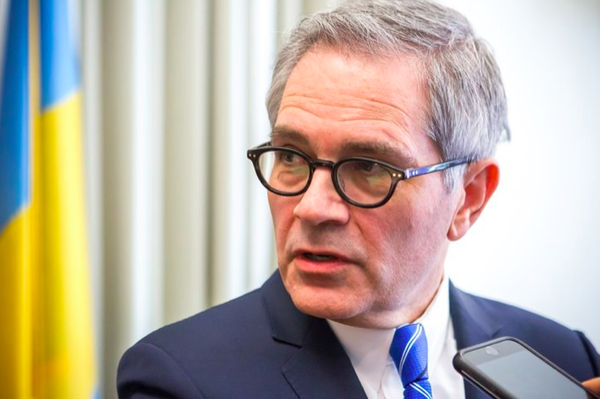Philadelphia District Attorney Larry Krasner has defeated Republican challenger Chuck Peruto to earn a second term as the city's top prosecutor.
Krasner, the longtime civil rights lawyer and progressive reformer, was heavily favored heading into Tuesday's election. He beat Peruto by nearly a 40% margin. Kreasner will now get another four years to work on lasting solutions to address Philadelphia's epidemic of gun violence and continue to confront systemic problems in the criminal justice system.
- PHILADELPHIA DISTRICT ATTORNEY RACE
- Larry Krasner: 125,858 votes (69.49%) ✅
- Chuck Peruto: 55,251 votes (30.51%)
- 1,643 of 1,703 precincts reporting
Peruto, a former Democrat and prominent Philadelphia defense attorney, had run a longshot campaign that tried to capitalize on the city's wariness of Krasner as an able defender of public safety. Though he voted for Krasner in 2017, Peruto was motivated to run against him this year in response to widespread dissatisfaction with unchecked violent crime.
The AP called the race for Krasner with about 55% of the vote tallied. Krasner had already amassed an insurmountable lead, with 80,257 votes to Peruto's 32,389.
Four years ago, Krasner's election in Philadelphia heralded a wave of progressive district attorneys who championed reform-minded agendas in cities around the United States. Krasner rolled to the Democratic nomination again in May when he defeated challenger Carlos Vega, garnering more than 66% percent of the vote in a contentious but low-turnout primary.
- MORE ELECTION COVERAGE
- Voters head to polls for New Jersey's gubernatorial election between Phil Murphy, Jack Ciattarelli
- An at-a-glance recap of Tuesday's election results in Pennsylvania and New Jersey
- Preview: Philly DA Larry Krasner faces Chuck Peruto and more condemnations of his office's progressive policies
The lopsided math of Philadelphia's 7-to-1 Democratic voting base largely made Tuesday's election a foregone conclusion, even if many of the questions surrounding Krasner remain unchanged. The last Republican to hold office as Philadelphia district attorney was Ronald D. Castille, who resigned during his second term in 1991 to run for mayor.
Krasner, 60, has been consistently plagued by criticism over the rise in shootings and homicides in Philadelphia during his first term. That trend has accelerated since the start of the coronavirus pandemic. The city recorded 499 homicides in 2020, up from 356 the previous year, and already has reached 460 homicides in 2021. The police department has reported more than 3,300 shooting incidents and 1,800 shooting victims this year, both outpacing last year's unsettling stats.
"We're in a terrible phase right now, just like the rest of the country," Krasner told FOX 29 ahead of the election on Tuesday. "But I think we're starting to see results right now. I think it is vindicating what criminologists have said, which is that this is related specifically to the pandemic and now we've got to get really smart."
Krasner's campaign website touted a number of accomplishments made during his first term, including a reduction of the city's prison population by 40% – which puts it at its lowest level since 1985. The campaign also pointed to efforts at the D.A.'s office to keep juvenile offenders from being tried as adults, offering them alternative pathways through restorative justice.
The District Attorney's Office received particular praise for the work of its Conviction Integrity Unit, which has helped win the exonerations of 18 people who had been imprisoned due to wrongful convictions.
The overarching theme of Krasner's first term was equity and accountability in the criminal justice system. His office targeted entrenched systems and practices like cash bail, civil asset forfeiture and heavy-handed prosecution of minor offenses, while vigorously pursuing charges in cases involving police misconduct.
But much like Vega did in the Democratic primary, Peruto, 66, focused almost entirely on the city's surge in shootings and a falling conviction rate for gun crimes during Krasner's first term.
"This is a single issue race. It's public safety," Peruto said. "It's not about abortion. It's not about the rights of school children. It's not about schools and school safety."
Peruto's platform called for an idiosyncratic mix of moderate policies, expansion of the D.A.'s power and other positions that promised to roll back Krasner's more progressive stances. On the question of police reform, Peruto attempted to strike a balance between acknowledging the need for internal change and making assurances that law enforcement would have greater support for crimefighting, backed by tough prosecution.
Unlike Vega, Peruto did not get the same boost in visibility that came with a vocal endorsement from the Philadelphia Fraternal Order of Police Lodge 5, the powerful anti-Krasner police union whose campaigning played a big role in making the primary appear closer than it ultimately was.
Krasner declined to debate Peruto in the run-up to the election, claiming it was more important to do his job. Instead, the D.A. tried to speak directly to the skepticism that abounds in Philadelphia after a first term marked by spiraling violence.
"Do I bear responsibility? Yes, we all do. All of us," Krasner said before the election. "Every elected official, every person in law enforcement and, frankly, every Philadelphian bears some level of responsibility because we all want something better. And I mean that from the bottom of my heart. We want something better."

